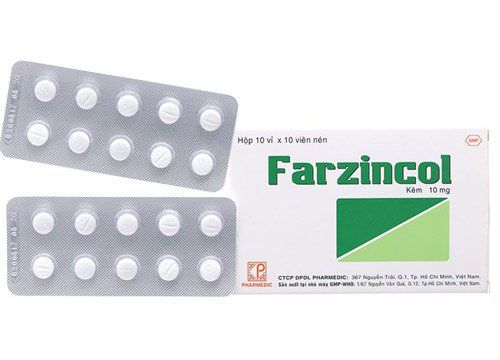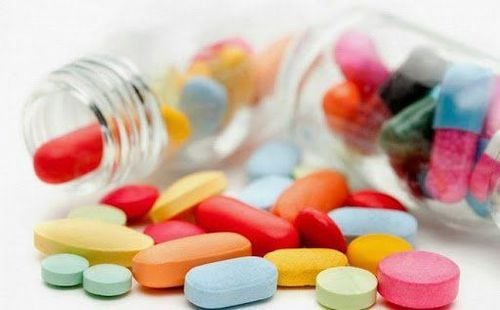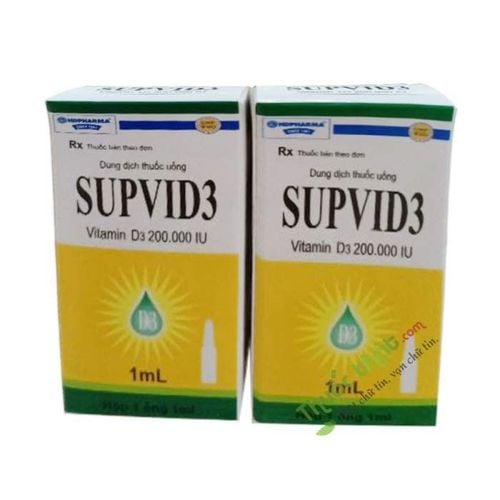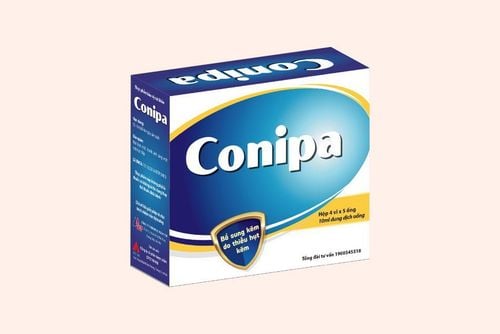This is an automatically translated article.
Posted by Master, Doctor Mai Vien Phuong - Gastrointestinal Endoscopy - Department of Medical Examination & Internal Medicine - Vinmec Central Park International General Hospital.Short bowel syndrome (SBS) is a malabsorption condition that is associated with a high frequency of complications and a high use of healthcare resources. Therefore, in some cases doctors need to supplement vitamins and minerals for patients with this syndrome.
1. Assess vitamin and mineral deficiencies before treatment
Short bowel syndrome (SBS) is a malabsorption condition that is associated with a high frequency of complications and a high use of healthcare resources. Short bowel syndrome usually does not become clinically apparent until about three-quarters of the small bowel (SB) has been resected.Patients with short bowel syndrome are at risk for many vitamin and mineral deficiencies, therefore, patients need lifelong monitoring and supplementation. The authors recommend baseline assessment of electrolytes and micronutrient levels (eg, vitamins A, D, E, B12, folate, zinc, selenium, iron indices including ferritin, and fatty acids). essential) during the initial medical examination. However, micronutrients whose serum value is affected by inflammation or infection (eg, vitamin A, possibly D, zinc, and ferritin) should not be tested until these problems are resolved. that is fixed.
There are no evidence-based guidelines indicating which micronutrients should be monitored or optimal timing for how often to monitor them. Therefore, the frequency of monitoring will generally depend on the presence of existing or previous deficiencies. In patients with stable short bowel syndrome with or without parenteral nutrition, a semi-annual assessment of micronutrients and essential fatty acids is recommended. Because water-soluble vitamins are absorbed proximal to the small intestine, deficiency is uncommon in patients with short bowel syndrome. In contrast, deficiency of fat-soluble vitamins and essential fatty acids is more common and may require large doses to maintain normal plasma concentrations. When deficiency is identified, it is recommended to supplement with aqueous preparations of vitamins A, D and E at doses that normalize plasma levels.
MORE: Consequences of short bowel syndrome
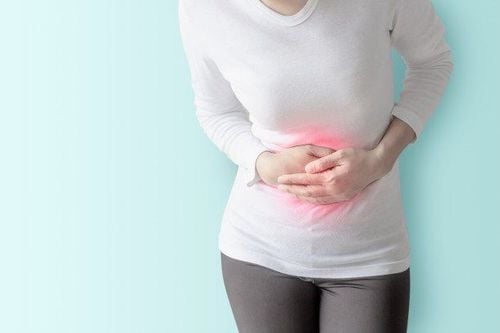
2. Vitamin and mineral supplements for patients with short bowel syndrome
2.1. Zinc supplements Zinc and sometimes copper and selenium supplements may be required in cases where the patient has lost a lot of stools. Supplementation is usually based on clinical suspicion because many factors alter serum concentrations. Iron supplementation is not usually required, as iron is absorbed from the upper gastrointestinal tract, an uncommon site of resection in patients with short bowel syndrome. Iron supplements may be needed if you are not getting enough iron or if you have chronic gastrointestinal bleeding.2.2. Vitamin B12 supplementation Absorption of vitamin B12 from food is impaired in people with more than 50 to 60 centimeters of terminal ileum removed. These patients will need lifelong vitamin B12 supplementation. This medication is usually given by monthly injection, however, some people can take synthetic B12 orally. If used orally, 1000 mcg/day is recommended, and the first 3, 6, and 12 months after initiation of use should be monitored to ensure efficacy. Since bacterial overgrowth not only competes with the host for ingested vitamin B12, but B12 can be partially metabolized to inactive analogues that compete with B12 for binding and absorption.
MORE: How is short bowel syndrome treated?
2.3. Vitamin D Patients with short bowel syndrome requiring intravenous nutrition are at particularly high risk of vitamin D deficiency. Many factors contribute, including:
Insufficient sunlight exposure due to chronic disease Ability to absorb or tolerate foods rich in vitamin D may be poor Dietary vitamin D may be absorbed least; Comorbidities and medications that may interfere with vitamin D metabolism; In addition, poor vitamin D status preceded the development of short bowel syndrome. Furthermore, vitamin D maintenance is difficult in many patients with short bowel syndrome, in part because parenteral nutrition solutions containing only 200 IU per day as part of a multivitamin are available. . Serum vitamin D (as 25-OH vitamin D) and intact PTH with baseline bone density scans should be performed in all of these patients.
Vitamin D is one of the few supplements that a patient with short bowel syndrome may need, in addition to a multivitamin/mineral supplement. Many people use 50,000 IU per week, however, some patients may do better with daily dosing, if weekly dosing is not effective. Finally, liquid vitamin D may work when nothing else works, but some insurers may need to justify other forms not working. Finally, direct sunlight onto the hands and feet, or controlled UV exposure with a Sperti lamp.
MORE: Role of Somatropin in Short Bowel Syndrome

3. Guidelines for Clinicians
Although many recommendations for micronutrient supplementation appear in the medical literature, there is little evidence to guide clinicians. As a result, doctors don't have a lot of procedures and attention when determining their approach. Until better evidence is available, encourage patients to eat nutritious foods first, then take multivitamin and therapeutic mineral supplements. Chewable, crushed, or liquid form can improve its bioavailability, and individual multivitamin and mineral supplements should be avoided whenever possible.One must consider not only the osmotic effect these agents can have on the amount of feces and fluids required to absorb them, not to mention the sheer cost of all these supplements and time in a day to take them all. For these reasons, the authors recommend periodically doing a "total pill" and then asking "does this make sense and does the patient have time to live?"
Nutrition therapy is central to the successful management of patients with short bowel syndrome. Continuing and important education to the extent that the patient/carer can be understood from the outset is essential and sufficient time must be devoted to this purpose. As the gut adapts and improves absorption, it is possible that dietary interventions could be released. Lifelong follow-up is necessary in all patients with short bowel syndrome, and management goals often change over time.
Please dial HOTLINE for more information or register for an appointment HERE. Download MyVinmec app to make appointments faster and to manage your bookings easily.
ReferencesJohn K. DiBaise, Carol Rees Parrish, Short Bowel Syndrome in Adults – Part 1 Physiological Alterations and Clinical Consequences, Nutrition issues in gastroenterology, series
132, Practical gastroenterology • august 2014. 1. O'Keefe SJ, Buchman AL, Fishbein TM, Jeejeebhoy KN, Jeppesen PB, Shaffer J. Short bowel syndrome and intestinal failure: consensus definitions and overview. Clin Gastroenterol Hepatol. 2006 Jan;4:6-10. Dabney A, Thompson J, DiBaise J, et al. Short bowel syndrome after trauma. Am J Surg 2004;188:792-795. 3. Amiot A, Messing B, Corcos O, Panis Y, Joly F. Determinants of home parenteral nutrition dependency and survival of 268 patients with non-malignant short bowel syndrome. Clin Nutr 2013;32:368-374. Thompson JS, DiBaise JK, Iyer KR, et al. Postoperative short bowel syndrome. J Am Coll Surg 2005;201:85-89






